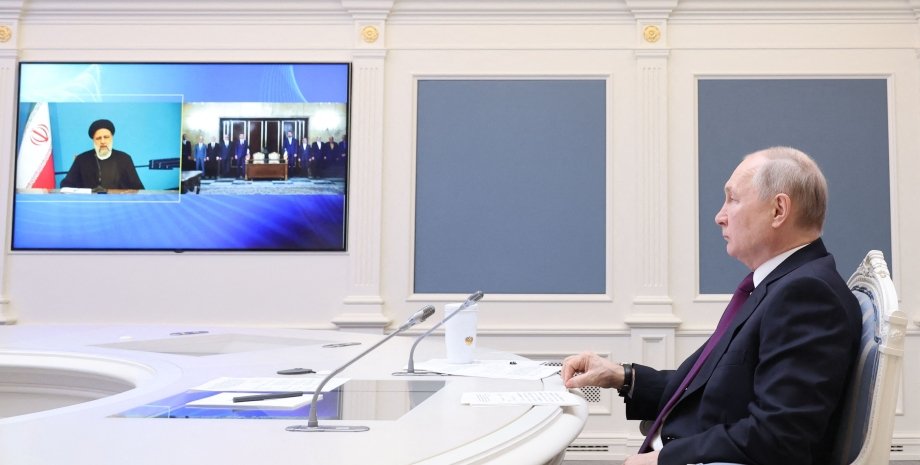
These are two new transport corridors - navigation and railway network through Iran and the northern maritime route. These routes will help the Russian Federation to get around the Red Sea, where there is still an international navigation, reducing the time of logistics by 30-50% compared to the passage through the Suez Canal and avoid sancing monitoring.
However, as the agency points out, the problem rests on an outdated Iranian infrastructure, which should be invested in significant investments. And the northern maritime route will require billions of investments. As Bloomberg has become known, the Russian Federation is about to invest over $ 25 billion in these projects to upgrade Iran's infrastructure and improve the coastline of the Russian Arctic, as well as to upgrade the navy of the ice floors produced by the Russian Federation.
According to experts, this testifies to the strengthening of Moscow's turn towards the great Asian states - China and India, as well as the Kremlin's intention to become a center of international trade. Despite the isolation of Russian leader Vladimir Putin and the country he headed through aggression in Ukraine, the largest economies of Asia, including the Gulf countries, expressed interest in these projects.
At the same time, Iranian infrastructure remains a significant obstacle, which holds back the development of this logistics route, which has already been called "International Transport Corridor" North - South. This will help to diversify the world transport flows significantly, "Putin said at a videoconference with Iranian colleague Ebrahim Raisi. According to the agency analysts, this can really increase the capacity of this transport corridor by 85% - up to 35 million tons of cargo per year.
This route will connect with Iran and India, it will help to combine with the rest of South Asia, the Gulf countries and the African continent. It is that this transport corridor will be out of sanctions, and this is the main idea. , - said Vaishali Bassa Sharma, former consultant of the Secretariat of the National Security of India. Sanctions also forced to terminate contracts for the supply of Russian specialized swimming products - icebreakers.
In total, all transit between North America, Europe and Asia through the Arctic, which in 2021, for example, accounted for about 40% of the volume of all world transportation, was stopped due to fears of both primary and secondary sanctions. And even despite the situation in the Red Sea, through which navigable companies have to choose a long and expensive marine route around southern Africa.
At the same time, for example, in October 2023 the DP World Operator signed an agreement with the state "Rosatom" on further cooperation in the field of container transportation on the route Vladivostok - Murmansk. In addition, Russia is building the fifth of seven planned atomic iceings for the operation of the Northern Marine Way, and Putin called this fleet a "huge competitive advantage" for the country.
During the descent of two iceings on the water in November 2022, the Russian leader stated that it was these ships that would help Russia fully disclose "export potential and create effective logistics routes, in particular in Southeastern Asia. " Recall that Focus wrote on April 18: despite the fact that the war continues, Russia is still earning, as experts say, calling two factors that help the Kremlin.










All rights reserved IN-Ukraine.info - 2022